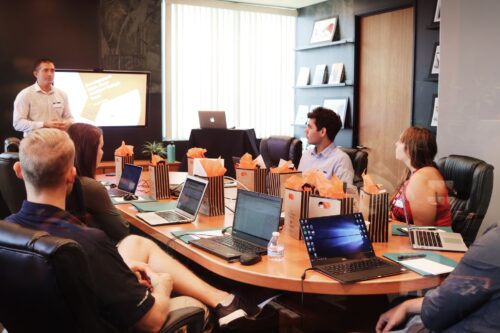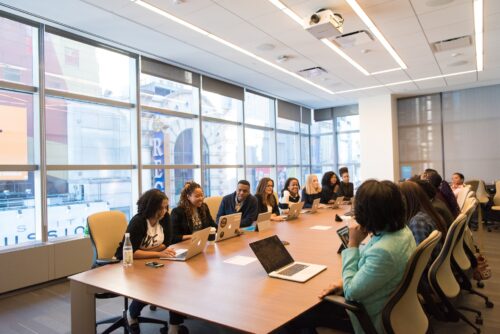Let’s see an Insightful Analysis by the Australian Human Rights Commission Male-dominated industries have long been a significant part of the Australian workforce. These industries, characterized by a high proportion of male employees, play a crucial role in the country’s economy. Sectors such as construction, mining, and manufacturing have traditionally been male-dominated, with women comprising a small fraction of the workforce. While there have been efforts to promote gender equality and diversity, these industries continue to face challenges in creating inclusive and safe workplaces for all employees. Sexual harassment in the workplace is a pervasive issue that affects individuals across various industries. It is defined as any unwanted conduct of a sexual nature that makes a person feel offended, humiliated, or intimidated. In the context of male-dominated industries, sexual harassment can take many forms, including inappropriate comments, gestures, or physical contact. The power dynamics inherent in these industries can exacerbate the problem, as victims may fear retaliation or dismissal if they speak out against their harassers.
The Prevalence of Sexual Harassment in Male-Dominated Industries Australia
Recent studies and surveys have shed light on the alarming rates of sexual harassment in male-dominated industries in Brisbane, QLD, Australia. According to a report by the Australian Human Rights Commission, more than half of the women working in male-dominated industries have experienced some form of sexual harassment in their careers. These shocking statistics highlight the urgent need for action to address this pervasive issue and create safer work environments for all employees.
Factors Contributing to Sexual Harassment in Male-Dominated Industries Australia
Several factors contribute to the prevalence of sexual harassment in male-dominated industries in Brisbane, QLD, Australia. The imbalance of power, where men hold most leadership positions and women are often in more vulnerable positions, creates an environment conducive to harassment. Additionally, the “boys’ club” culture prevalent in these industries can perpetuate sexist attitudes and behaviors. Lack of diversity and gender representation further exacerbate the problem, as women may feel isolated and unsupported in their workplaces.
Impacts of Sexual Harassment on Victims and the Workplace Australia
The impacts of sexual harassment on victims and the workplace are far-reaching. Victims may experience significant psychological and emotional distress, leading to anxiety, depression, and a decline in work performance. The overall workplace environment is also affected, as sexual harassment can create a toxic and hostile atmosphere. Employees may feel unsafe, demoralized, and less motivated, leading to decreased productivity and increased turnover rates. It is essential to recognize and address these impacts to foster a safe and inclusive work culture.
The Role of the Australian Human Rights Commission Australia
The Australian Human Rights Commission plays a crucial role in addressing sexual harassment in male-dominated industries. As an independent statutory body, it is responsible for promoting and protecting human rights in Australia. The Commission provides guidance, support, and resources to individuals and organizations, raising awareness about sexual harassment and advocating for change. Through its research and investigations, the Commission generates valuable insights into the extent of the problem and identifies areas for improvement.
Insightful Analysis of the Australian Human Rights Commission Report Australia
The Australian Human Rights Commission’s report provides an insightful analysis of sexual harassment in male-dominated industries. It highlights the specific challenges faced by women in these industries, such as the normalization of derogatory language and objectification. The report also emphasizes the need for a comprehensive approach to prevention, including education and training, robust reporting mechanisms, and accountability measures for perpetrators. By examining individual case studies and industry-wide patterns, the report offers a comprehensive understanding of the issue and identifies potential solutions.
Recommendations for Addressing Sexual Harassment in Male-Dominated Industries Australia
To effectively address sexual harassment in male-dominated industries, a multi-faceted approach is required. The Australian Human Rights Commission report offers several recommendations, including the implementation of stronger policies and procedures, improved reporting mechanisms, and increased education and awareness programs. Organizations should prioritize diversity and inclusion, promoting gender equality at all levels. Additionally, bystander intervention training can empower employees to recognize and intervene in instances of sexual harassment. By implementing these recommendations, organizations can create safer and more inclusive workplaces.
Onsite Sexual Harassment Prevention Training – WHS and Training Compliance Solutions
In addition to the recommendations provided by the Australian Human Rights Commission, organizations can take proactive steps to combat sexual harassment. Onsite sexual harassment prevention training, offered by WHS and Training Compliance Solutions, equips employees with the knowledge and skills to recognize and prevent harassment. This comprehensive onsite sexual harassment prevention training covers topics such as understanding consent, identifying inappropriate behavior, and promoting a respectful workplace culture. By investing in such training, organizations can create a safer and more inclusive environment for all employees.
Successful Strategies Implemented by Organizations to Combat Sexual Harassment Australia
Several organizations in Sydney, Melbourne, Brisbane, Perth, Adelaide and across Australia have successfully implemented strategies to combat sexual harassment in male-dominated industries. These strategies include establishing clear policies and procedures, fostering a culture of respect and equality, and providing support and resources for victims. Some organizations have also implemented anonymous reporting mechanisms and regular surveys to gauge the prevalence of sexual harassment. By sharing best practices and learning from successful initiatives, organizations can work together to eradicate sexual harassment from the workplace.
Conclusion and Call to Action
Addressing the alarming rates of sexual harassment in male-dominated industries in Australia requires a collective effort from individuals, organizations, and policymakers. It is crucial to challenge the norms and attitudes that perpetuate harassment and create inclusive and respectful workplaces. By implementing the recommendations provided by the Australian Human Rights Commission and adopting successful strategies, we can ensure that no one has to endure the trauma of sexual harassment. Let us work together to create a society where everyone feels safe, valued, and respected, regardless of their gender or industry.
If you or someone you know has experienced sexual harassment in the workplace, it is essential to speak up and seek support. Contact the Australian Human Rights Commission or your local WHS Regulator to report incidents and access the resources available to you. Together, we can make a difference and create a future free from sexual harassment in male-dominated industries.
WHS and Training Compliance Solutions offering Onsite Sexual Harassment Prevention Training in Sydney, Melbourne, Brisbane, Perth, Adelaide and across Australia. We can also provide the training online












